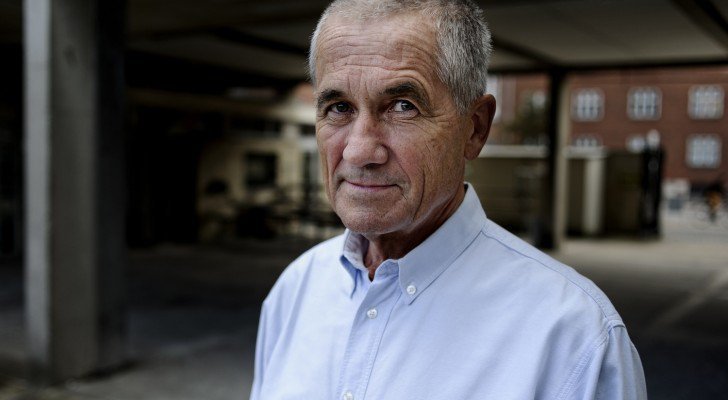Results from a new study by Peter and Pernille Gøtzsche at the Nordic Cochrane Center suggest that cognitive-behavioral therapy (CBT) may significantly reduce the risk of suicide for people who have attempted suicide in the past. Their analysis showed that those who received CBT were 50% less likely to attempt suicide again.
The study was a meta-analysis that updated the information from two (see 1 and 2) previous Cochrane reviews to find the most current and specific data. The previous studies included non-suicidal self-harm and included many different interventions, leading to difficulties in interpreting the results.

The Gøtzsches focused their review more specifically on people who have already attempted suicide and were then randomly assigned to receive either CBT (in addition to whatever treatment they were receiving), or simply treatment as usual (TAU). TAU often also included psychological support, but not necessarily CBT.
The Gøtzsches’ analysis included data from 10 previous studies, including 1241 patients. 219 of those patients attempted suicide again during the study period. 73 of those suicide attempts were in the CBT group, while 146 of the attempts were in the TAU group. That is, the amount of patients who attempted suicide in the CBT group was exactly half of that in the TAU group.
Because there were so few completed suicides (7), the Gøtzsches caution that the results are difficult to interpret. There were 3 completed suicides in the CBT group and 4 in the TAU group.
Unfortunately, the comparison between CBT and treatment as usual may not be particularly informative, as the group receiving treatment as usual was also likely to receive CBT or other psychotherapy. Additionally, because the participants had all attempted suicide in the past, the results may not be applicable to people who are diagnosed with depression but have never attempted suicide.
However, the Gøtzsches argue that the efficacy of other approaches, such as antidepressant medications, is much less clear. For instance, they cite evidence that antidepressants may actually increase the risk of suicide and violence and that the pharmaceutical industry and government regulators have deliberately misled the public about the risks. They suggest that significant bias and failure to appropriately blind drug trials have also resulted in overestimations of the efficacy of the drugs. Compared to these problems, the efficacy of CBT in this trial is clear.
According to the Gøtzsches:
“Cognitive behavioral therapy halves the risk of a new suicide attempt in patients who have previously attempted suicide, and it should therefore be the preferred treatment for all patients with depression. The clinical guidelines for treating depression need to be changed to reflect this. We believe antidepressant drugs should be avoided. They increase the risk of suicide; they have many other important harms; and their clinical effect on depression is doubtful.”
****
Gøtzsche, P. C., & Gøtzsche, P. K. (2017). Cognitive behavioural therapy halves the risk of repeated suicide attempts: Systematic review. Journal of the Royal Society of Medicine, 110(10), 404-410. doi: 10.1177/0141076817731904 (Link)















Thank you for the Worthwhile Artcle!
CBT completely stopped my suicidal tendencies – BUT indirectly. The strong psychiatric drugs I was consuming were causing the suicidal reactions (Akathisia) that I was suffering from, and a CBT type approach helped me deal with the anxiety i suffered from when i withdrew from these drugs.
I suffered from “Catastrophic thinking” when I stopped my “medication” and CBT showed me how to recognise and abandon this type of thinking.
Once I was out of the “drama” the “Catastrophy” did not seem realistic, and I could easily deal with my “problems”.
(In my 30 years off strong psychiatric drugs I have never experienced a suicidal problem or event).
Report comment
I agree with the other comments on this page’s thread. The primary aim of CBT is to teach the patient which thoughts are unhelpful, and how to change those thoughts.
In that sense it locates the problem entirely within the patient, and in practice the unhelpful patterns are predetermined according to a script which has little to do with the person’s own psychological needs.
In another sense, if, say the person’s financial means were limited, and their social situation was inflexible, judgemental, and dangerously reactive, then they might decide for themselves that changing their thought patterns, and hence behaviour could be desirable to them. Learn how to at least play-act when in enemy territory, so to speak.
So if you say something “worked” (with all considerations applied), then perhaps it did.
Given that CBT can be any of dozens of modalities, can you say what they did specifically that helped you?
Ok, I just found a comment by you, here:
https://www.madinamerica.com/2017/12/apa-drop-stigmatizing-term-schizophrenia/#comment-119948
..where you describe it as Buddhist in nature, so it sounds like a variant of the third wave of therapies which utilizes “mindfulness” aka MCBT.
Thank you.
Report comment
It should be entirely obvious to the entire MIA readership that psychotropic drugs CAUSE the very symptoms that they are purported to cure. Not only this, it is an indisputable fact that should be recognized by every sentient being that psychotropic drugs CAUSE people to commit suicide and to perpetrate terrible acts of violence. We have known this for many decades, and yet there are innumerable seemingly sophisticated studies conducted to examine the effects of this or that kind of therapy or treatment. Enough already. Can we stop pretending that psychiatry is helping people and get to the truth of the matter? The sooner that psychiatry is abolished, the sooner that suicides and acts of violence will be reduced. Psychiatry and the pharmaceutical industry have blood on their hands. It’s of no use to keep studying these phenomena when we know that psychiatry is the underlying cause of much of it. Abolish psychiatry, and let health and freedom flourish again.
Report comment
CBT? This is just a more extreme yet way of trying to ‘fix’ survivors, and it being based on the idea that the survivor has some sort of a problem which needs to be correct.
One Patient, One Plaintiff.
Fight the mental health and recovery system by all available means!
Report comment
Vitamin B3 also lowers the suicide rate in dysperceptive individuals, according to Hoffer and Osmond- and it isn’t a drug at all.
Report comment
CBT’s efficacy has been overstated for a long time. Psychotherapy research do not and cannot account or control for the myriad of factors that contribute to outcomes and I am not sure that “symptom relief” (ala the medical model) is a measure of “success” that everyone who enters therapy would subscribe to
Report comment
I agree with you regarding, “We believe antidepressant drugs should be avoided.” Absolutely, that is true. I personally cannot recommend therapy, in part because most psychologists believe in the scientifically invalid DSM. And this DSM belief system blinds them, and prevents them from actually helping others. At least that was my experience with “therapy,” and in working with psychologists in regards to children suffering from the adverse effects of the psychiatric drugs. Psychologists would rather label, than spend the minute it takes to look up possible major drug interactions, to find the root cause of the child’s problems.
Report comment